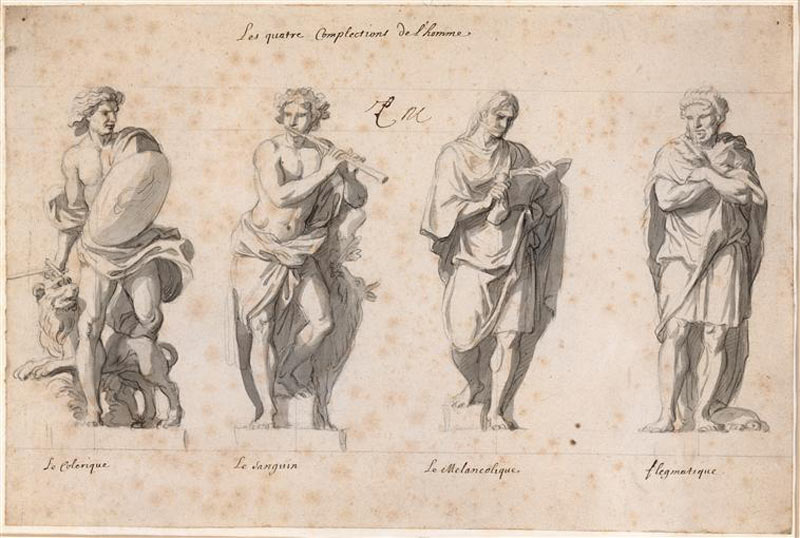
There is a way to understand human personalities that is based on knowledge from ancient Greece that is still used today to help couples with their marriages.
Art and Laraine Bennett of Virginia know some people might think that is strange, but they’ve devoted much of their lives to showing people why it works.
They use the centuries-old classification system called the “Four Temperaments” to clarify personality types and offer suggestions on how spouses can work together for a better relationship.

Mr. Bennett is a licensed marriage and family therapist, and Mrs. Bennett is a writer with a degree in philosophy. Together they have written four books on the topic. In early April, they shared their ideas with couples who attended a marriage conference at St. Mary Help of Christians Church in Aiken.
The concept of the four classic temperaments dates back to ancient times, with some sources believing it first developed in ancient Egypt or Mesopotamia.
The Greek physician Hippocrates is thought to be the first to incorporate the temperaments into medical theories. He and other early physicians thought health problems were caused by too much or too little of different fluids in the body, also called “humors”.
The idea of using the humors to diagnose physical health problems declined over the ages as medical knowledge grew, but the concept was not abandoned by philosophers and spiritual thinkers, including many Catholic scholars, Mr. Bennett said. Instead of using humors to diagnose and treat physical ailments, they instead used them to classify personalities and describe the way people related to the world around them.
“If you know your temperament, it’s helpful in navigating daily life and in understanding relationships,” Mr. Bennett said. “We’re called as Catholics to love everybody, and the temperaments can help you learn what is easier and what is harder for you in dealing with other people.”
Here are the four classic temperaments in a nutshell:
Sanguine people tend to be lively, sociable, outgoing, optimistic and enthusiastic about things. Choleric personalities are determined, extroverted, task-oriented, strong-willed and can tend to be irritable. Melancholic people are serious, introverted, cautious and often prone to moodiness. Phlegmatic personalities, meanwhile, are thoughtful, calm, patient and steadfast.
Each temperament is much more multi-faceted than these basic descriptions, and the Bennetts help couples and others learn which one they are through a basic question-and-answer test.
Once both spouses know their own temperaments, they can begin to understand how they relate to their spouse and how their two personalities can affect every facet of the relationship, from showing affection and dealing with finances to resolving conflicts.
“Knowing and understanding your temperament will tell you what things are easy and which are hard for you,” Mr. Bennett said. “If you’re more melancholic, to apologize to someone can be very difficult. If you’re sanguine, it’s no big deal.”
Simply understanding that your spouse is a different temperament can help you appreciate the good things about the differences rather than find them difficult, Bennett said.
Mrs. Bennett, a sanguine temperament, tells the story of how her idea of a great Christmas is to go to a lot of Christmas parties and interact with many different people, while Mr. Bennett prefers to stay home with family.
“She is very outgoing and when we first got married, it tended to bother me, but then I learned how to appreciate it,” he said. “I now understand that she is vivacious and enthusiastic and brings a lot of energy to things. She’s different from me, but it works. Temperaments are a great tool for building empathy and sympathy, and you learn respect for who your spouse is. The other person is not being the way they are to bother you — that’s just who they are.”
Understanding a spouse’s temperament can also help with the most basic building blocks of any relationship, such as daily decision making.
People with melancholic or phlegmatic temperaments, for instance, might want to carefully consider every aspect of a task or a decision and think about it for a long time before deciding. Sanguine or choleric people, on the other hand, might be able to make up their minds quickly and want to go ahead with a plan. This can lead to frustration with the spouse who is slower about making up their mind.
The Bennetts stress the fact that once they learn each other’s temperaments, husbands and wives need to learn how to work with each other and the various strengths and weaknesses each person brings to the table.
“Learning about the temperaments can really help to strengthen a marriage because once you learn about some of these things that cause people to act the way they do, you really learn to not get upset about the little things and focus on what matters,” Mr. Bennett said.
To take the quiz and find out what type of temperaments you and your spouse have, visit www.temperamentquiz.com.
The four temperaments:
- Sanguine people tend to be lively, sociable, outgoing, optimistic and enthusiastic about things.
- Choleric personalities are determined, extroverted, task-oriented, strong-willed and can tend to be irritable.
- Melancholic people are serious, introverted, cautious and often prone to moodiness.
- Phlegmatic personalities, meanwhile, are thoughtful, calm, patient and steadfast.

